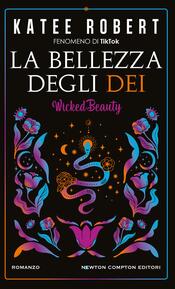

Sinossi
Cosa fa sì che i buoni diventino cattivi? Philip Zimbardo, noto come l'ideatore dell'Esperimento carcerario di Stanford, racconta qui la storia di questo studio. A un gruppo di studenti furono attribuiti a caso i ruoli di "guardia" e "detenuto" in un ambiente carcerario simulato. Dopo una settimana lo studio fu interrotto perché quei normalissimi studenti si erano trasformati in guardie brutali e in detenuti emotivamente distrutti. Zimbardo descrive come certe dinamiche di gruppo possano trasformare in mostri uomini e donne perbene e ci permette di comprendere meglio fenomeni di estrema crudeltà, dalla disonestà delle multinazionali a come soldati americani prima degni di stima siano giunti a perpetrare torture su detenuti iracheni ad Abu Ghraib.
- ISBN:
- Casa Editrice:
- Pagine: 769
- Data di uscita: 10-12-2007
Recensioni
Philip Zimbardo’s The Lucifer Effect is a difficult read, not because its premise is particularly startling, but because its examination of the psychology of evil shows it to be disturbingly simple. By placing each act of breathtaking cruelty beside a description of its perpetrator--invariably an or Leggi tutto
I was excited to read this, since I have a psychology background and had heard that it was a good look at the Stanford Prison Experiment, which I studied in college. I wasn't too impressed with this book though. It is at least 100 pages too long and bogged down by excessive detail, making it read li Leggi tutto
Zimbardo fucked up, BIG TIME. During the "Stanford Prison Experiment," an experiment he created, he was part of the actual testing and also became victim to the traps the other participants fell into. The idea was to separate the participants into two groups, guards and prisoners with Zimbardo t
I, after a couple of weeks, have finally finished “The Lucifer Effect.” I normally don’t dog ear books because, well, that’s almost sacrilegious, but there were points that I knew I wanted to come back to. Like this one which really came out there unexpectedly, and had me laughing so hard. After ask Leggi tutto
Well, interesting title and interesting subject, but I highly doubt his hypothesis. This book was borne out of Philip Zimbardo's work with a U.S. army soldier, who was one of the prison guards at Abu Ghraib in Iraq. Zimbardo is also the one who ran the infamous Stanford Prison Experiment in the 1970 Leggi tutto
As a huge psych nerd I was really happy to stumble across this book in the local library. For those who don't know and/or have forgotten psyc101 Zimbardo is the professor behind the infamous Stanford Prison Experiment. The seminal experiment where (Spoiler alert I guess) where ordinary young men wer Leggi tutto
This book should be called "The Stanford Prison Experiment and Other Things Regarding How Good People Turn Evil". The first 200 or so pages are about The Stanford Prison Experiment (1971 study involving the psychological effects of prisoners and prison guards). If you took Psychology 101 or 102 in c Leggi tutto
Well, I need to state my prejudices upfront. I'm kind of a secret fan of Doctor Zimbardo. See, I guess at some point he put together some kind of massive 26-episode series of half-hour lectures on how the mind works for public TV. They would come on at some ungodly hour of the morning so that I used Leggi tutto
“I would rather die than to accept being treaded as less than a human being.” ~~an ex prisoner from a real penitentiary I have heard of the Stanford Prison Experiment for years, and even just hearing about it was disheartening. Reading the book wass more than disheartening, it was depressing. It is t Leggi tutto
Citazioni
Al momento non ci sono citazioni, inserisci tu la prima!























